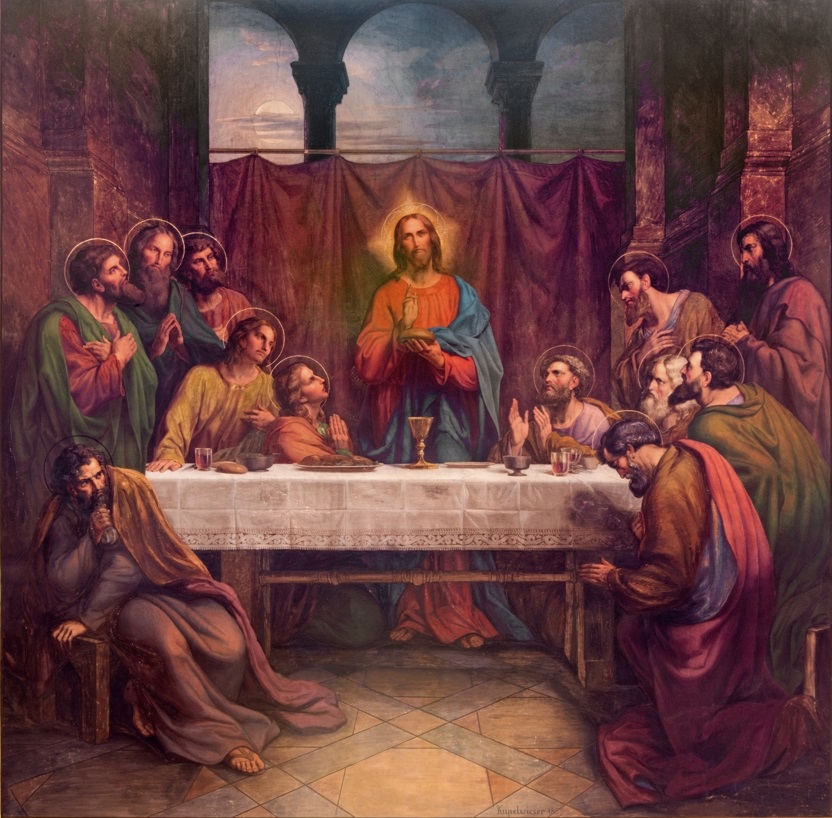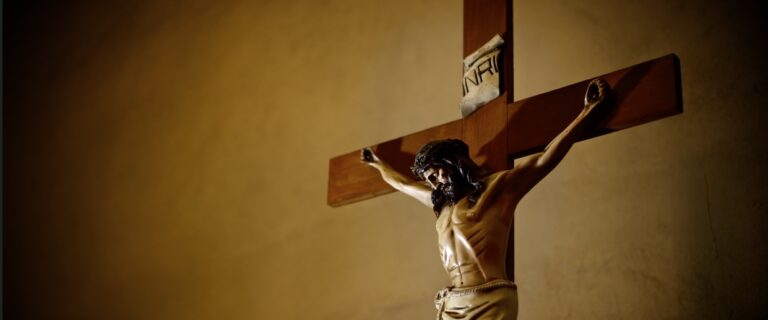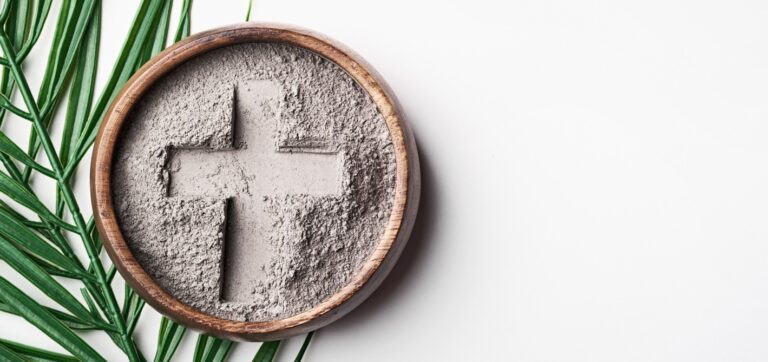
HOLY THURSDAY

In October of 2015 my wife Annette and I went on a tour of the Holy Land. Each place we visited there held its own special significance, but there was one in particular that stood out for me as the high point of the whole trip: the Cenacle.
The Cenacle, or the Upper Room, is historically recognized as the place where Jesus shared the Last Supper with his disciples on the eve of his crucifixion. As we entered, the room buzzed with the energy of so many tourist groups that it made it hard to hear our tour guide. But despite the hustle and bustle, there was an undeniable reverence in the air.
As our guide led us outside, I noticed all the other groups were also leaving. The entire room was suddenly empty. Seizing the moment, I asked our guide for a few minutes and ventured back into the Cenacle.
Standing alone, taking in the tranquility of the Upper Room for a minute or two, I was overcome by the magnitude of what had happened within these walls. Christ, through whom all things were made (John 1:3), has been in this room in human form, knowing he was about to be crucified.
I imagined the scene of the Last Supper unfolding before me: Jesus breaking the bread and giving it to his disciples, saying, “Take and eat; this is my body.” Then, taking a cup and giving thanks, he had given it to them, saying “Drink from it, all of you. This is my blood of the covenant, which is poured out for many for the forgiveness of sins (Matthew 26:26-29).” He was instituting the Eucharist, a covenant that would unite believers and echo throughout the centuries, a way for us to connect intimately with the divine, a bridge between humanity and the eternal.
Medical science tells us we are what we eat, but so did Jesus on that day!
Alone as I was in that room, the weight of what had happened there seemed to press down on me, filling me with reverence for what Jesus had done there.
Today, when I pass Holy Communion to hospital patients, I often sense, especially among those in palliative care in the final days of their life, a deep connection with God, a profound reverence which is sometimes expressed through tears, reflecting their intense spiritual engagement of receiving the Eucharist. Holy Thursday calls us to reflect, with such reverence, on the depth of Jesus’s gift, and to approach the Eucharist with gratitude.
After the supper, Jesus retreated to the Garden of Olives, also known as Gethsemane. It was there, in the quiet darkness of the night, that he prayed with anguish. I remember standing in that same garden, imagining the weight he must have borne at the thought of what was to come, but yet obedient and trusting in God’s plan, embracing the cross for the sake of all humanity.
As I reflect on that time in Jerusalem, the memories of the Cenacle and the Garden of Olives are powerful reminders of the significance of Holy Thursday. This day challenges us to embrace the gift of the Eucharist as a source of spiritual nourishment and strength.
Today, as we celebrate Holy Thursday, let us give thanks for that gift which unites us in God.
Eugene Aucoin is a retired human resources director and university professor. He spoke around the world about nurturing human potential, but his passion is sharing his love for the teachings of Jesus. His first book Has Science Killed God? won Asia’s best Catholic book of the year in theology in 2020. His latest book, with Novalis, is The Beatitudes: Eight Steps to Inner Peace and Happiness. Eugene also gives seminars about faith.


